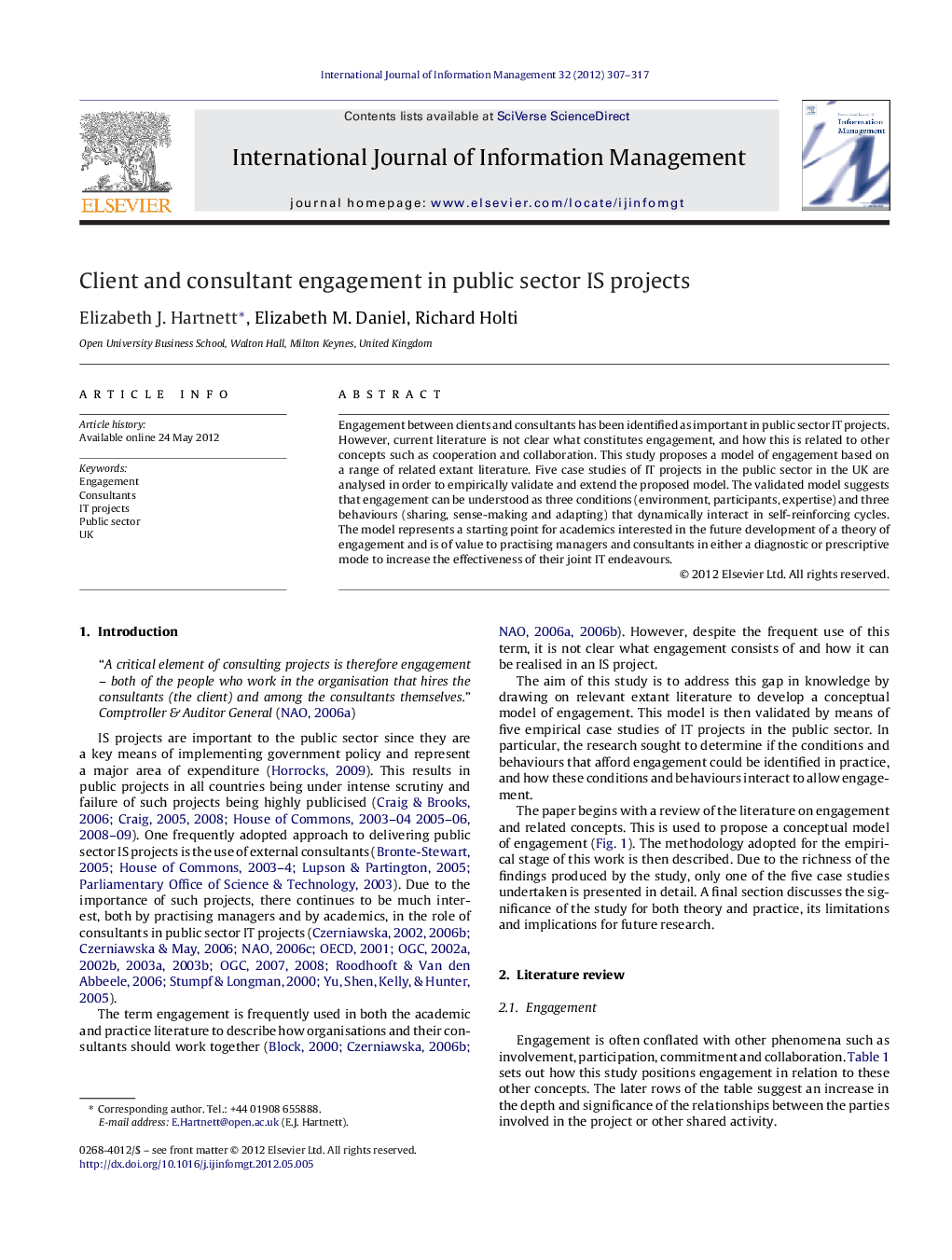| Article ID | Journal | Published Year | Pages | File Type |
|---|---|---|---|---|
| 1025791 | International Journal of Information Management | 2012 | 11 Pages |
Engagement between clients and consultants has been identified as important in public sector IT projects. However, current literature is not clear what constitutes engagement, and how this is related to other concepts such as cooperation and collaboration. This study proposes a model of engagement based on a range of related extant literature. Five case studies of IT projects in the public sector in the UK are analysed in order to empirically validate and extend the proposed model. The validated model suggests that engagement can be understood as three conditions (environment, participants, expertise) and three behaviours (sharing, sense-making and adapting) that dynamically interact in self-reinforcing cycles. The model represents a starting point for academics interested in the future development of a theory of engagement and is of value to practising managers and consultants in either a diagnostic or prescriptive mode to increase the effectiveness of their joint IT endeavours.
► We outline five case studies of public sector IS projects. ► We examine conditions and engaged behaviours in detail in one case study. ► Three conditions for engagement are identified as environment, participants and expertise. ► Conditions afford engaged behaviours. ► Engaged behaviours of sharing, sense making and adapting appear to cycle and reinforce each other.
